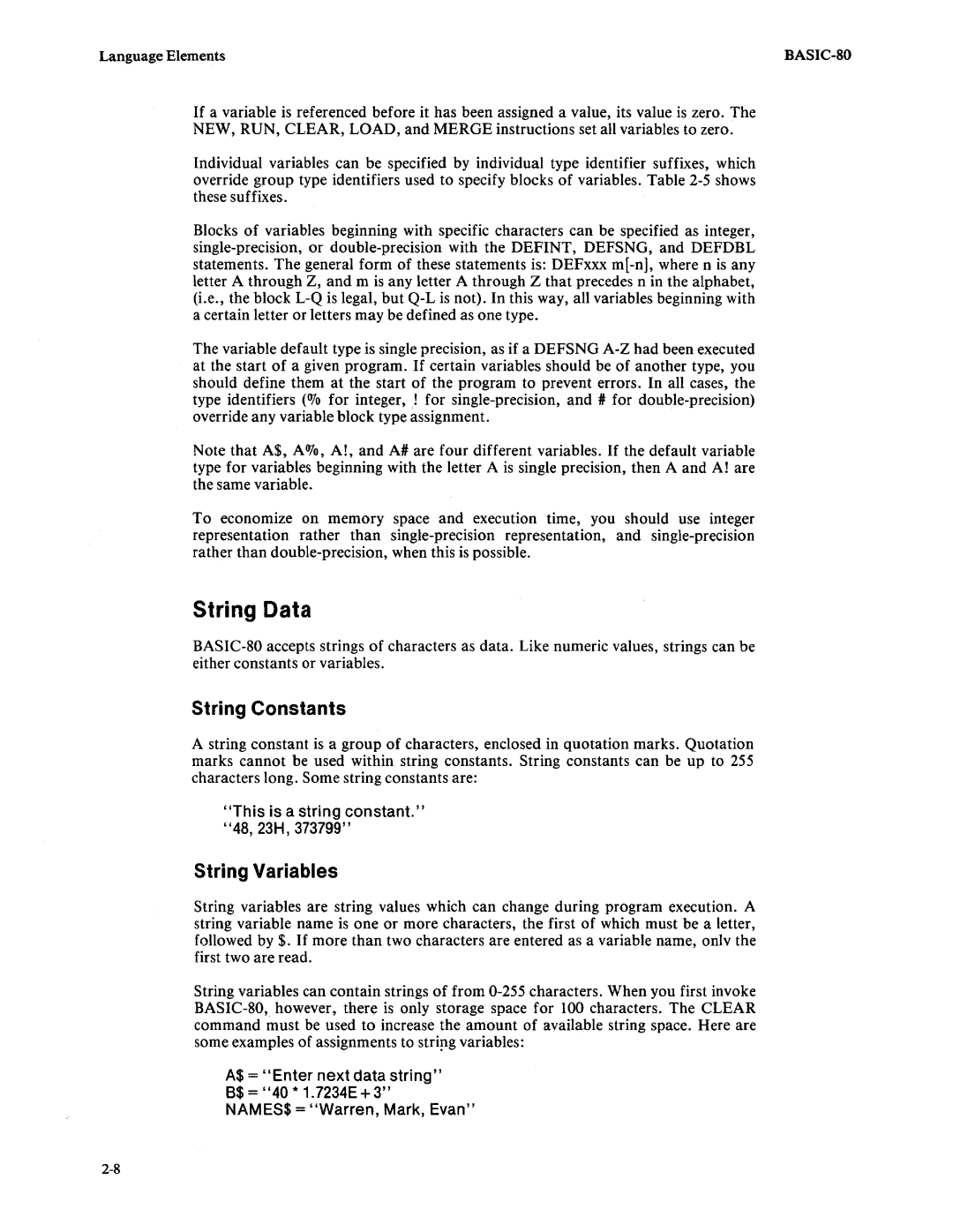
Language Elements |
If a variable is referenced before it has been assigned a value, its value is zero. The NEW, RUN, CLEAR, LOAD, and MERGE instructions set all variables to zero.
Individual variables can be specified by individual type identifier suffixes, which override group type identifiers used to specify blocks of variables. Table
Blocks of variables beginning with specific characters can be specified as integer,
The variable default type is single precision, as if a DEFSNG
Note that A$, AOJo, A!, and AI are four different variables. If the default variable type for variables beginning with the letter A is single precision, then A and A! are the same variable.
To economize on memory space and execution time, you should use integer representation rather than
String Data
String Constants
A string constant is a group of characters, enclosed in quotation marks. Quotation marks cannot be used within string constants. String constants can be up to 255 characters long. Some string constants are:
"This is a string constant."
"48, 23H, 373799"
String Variables
String variables are string values which can change during program execution. A string variable name is one or more characters, the first of which must be a letter, followed by $. If more than two characters are entered as a variable name, onlv the first two are read.
String variables can contain strings of from
A$ = "Enter next data string"
B$ = "40 * 1. 7234E + 3"
